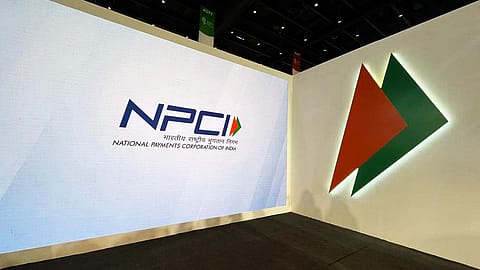NPCI simplifies UPI dispute process: Here’s what remitting banks and users should know
New rule simplifies UPI dispute process; NPCI warns against misuse

The National Payments Corporation of India (NPCI) has announced a new rule that will make it easier for banks to resolve certain failed chargebacks on the Unified Payments Interface (UPI). This change will take effect from July 15, 2025, and aims to speed up customer dispute resolution while reducing the need for NPCI's intervention.
In a recent circular, NPCI introduced the concept of RGNB — Remitting Bank Raising Good Faith Negative Chargeback. This option allows banks to raise a chargeback again in good faith, even if it was previously declined due to UPI system limits.
Kunal Varma, CEO and Founder of Freo, said, “The new UPI chargeback framework, which launches on 15th July, is a positive step towards increasing transparency and accountability in digital payments. With UPI transactions rising at an explosive rate, so too are the number of disputes, which arise mainly from failed or fraudulent transactions. Having a chargeback process ensures that consumers have some protection and should also help enhance trust in the broader ecosystem.”
What has changed?
Currently, UPI allows a limited number of chargeback attempts — only 10 for account number-based disputes and 5 for VPA-based disputes. Once these limits are crossed, the 11th or 6th attempt (referred to as CD1 or CD2) is automatically rejected. To proceed further, banks had to request NPCI to whitelist the dispute before raising it again.
Now, banks no longer need prior NPCI approval. They can directly raise a good-faith chargeback, known as RGNB, through the system’s front-end interface.
Recommended Stories
“To avoid NPCI intervention for whitelisting disputes, NPCI has simplified the process by allowing issuing/remitting banks to raise chargebacks that were rejected due to the negative chargeback rule,” the circular stated.
Atul Gupta, Head of Risk and Compliance at Cashfree Payments, said, “This update simplifies and accelerates the chargeback dispute process under UPI, specifically by addressing scenarios where genuine disputes were previously delayed due to threshold-based rejections. Following this revision, even if a chargeback was initially declined due to system thresholds, issuing/remitting banks are now permitted to raise genuine chargebacks via NPCI’s URCS portal directly, eliminating the earlier dependency on NPCI to whitelist such cases. This ensures faster reversal and transparency in the ecosystem while holding all participants accountable for responsible usage.”
(INR CR)
How RGNB works
RGNB can only be used when a chargeback is rejected due to the CD1 or CD2 rule. The remitting bank raises the dispute again as a “good faith” adjustment. If accepted, the remitting bank is credited immediately, and the beneficiary bank is debited.
The beneficiary bank has 3 calendar days for P2P (person-to-person) and 15 calendar days for P2M (person-to-merchant) transactions to accept or respond. If no action is taken, the system treats it as deemed accepted.
“Once the adjustment is raised, the funds will be settled immediately by crediting the remitter bank and debiting the same to the beneficiary bank that has received the good faith negative chargeback,” NPCI clarified.
Strict guidelines to prevent misuse
NPCI has warned banks not to misuse this facility. “This option should not be used to avoid any compensations and penalties. Any deviation shall be treated as non-compliance with NPCI guidelines,” the document stated.
All these changes are in line with NPCI’s goal of improving customer experience and reducing operational delays in UPI dispute handling.
Banks have been instructed to train relevant staff and update their internal systems before the July 15 rollout.
“Member banks are advised to take note of the above and disseminate the information contained herein to the officials concerned,” NPCI stated.
“In short, this will bring UPI closer to its peers globally — that is, a payment system that has adopted processes for clear dispute redressal. If this goes well, it is a good step towards balancing convenience and consumer protection,” Varma added.